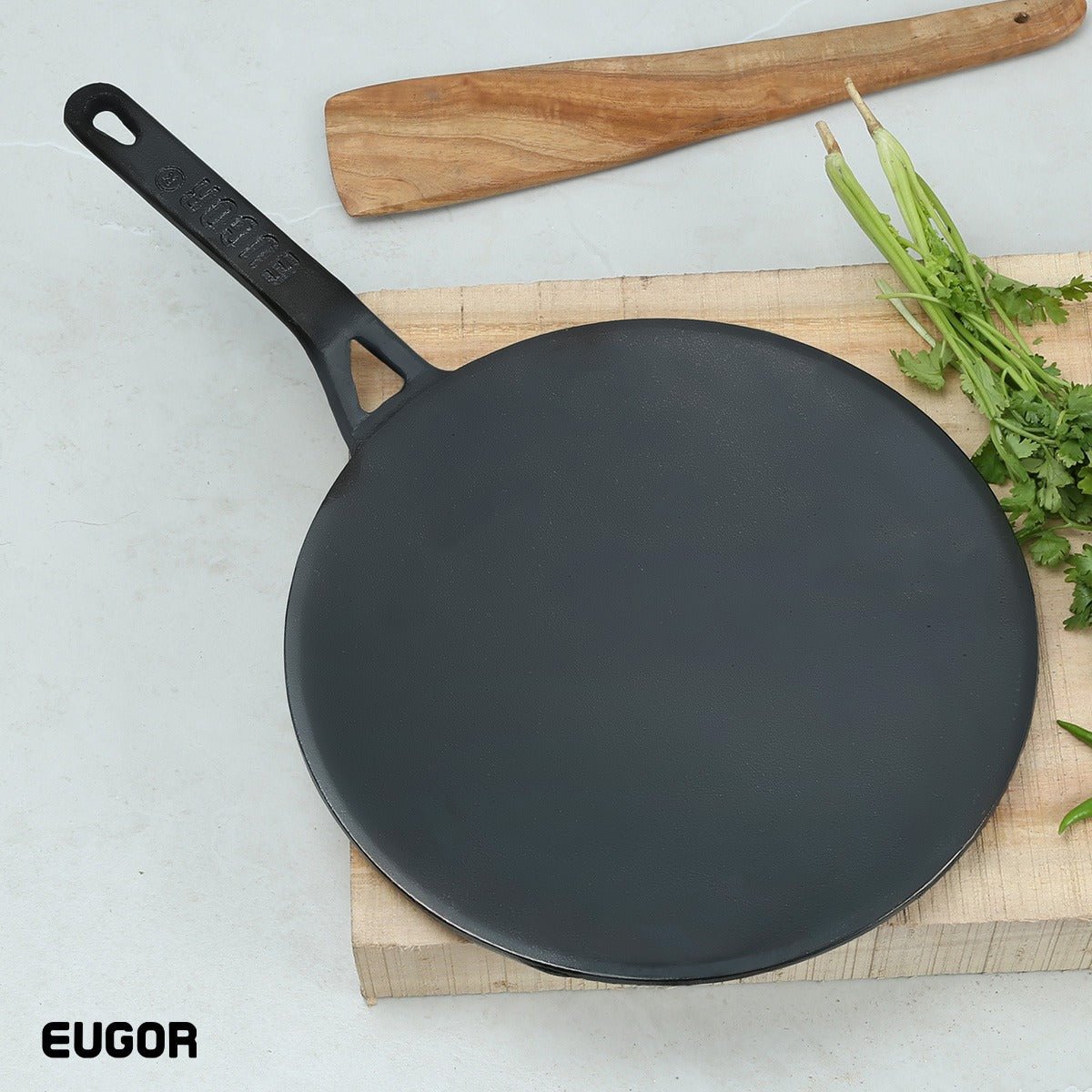
Cast Iron Cookware: A Sustainable and Eco-Friendly Choice
In today's world, where sustainability and eco-friendliness are becoming increasingly important, it's essential to make conscious choices in every aspect of our lives, including the cookware we use in our kitchens. Cast iron cookware has gained popularity not just for its excellent cooking properties, but also for being a sustainable and eco-friendly choice. In this article, we will explore the numerous benefits of cast iron cookware and why it's a wise option for those who want to make environmentally conscious decisions in their cooking routines.
Table of Contents
- Introduction
- What is Cast Iron Cookware?
- The Longevity of Cast Iron
- Energy Efficiency
- Versatility in Cooking
- Health Benefits
- Minimalistic Maintenance
- Recyclability
- Sustainability in Production
- Avoiding Toxic Chemicals
- Aesthetic Appeal
- Seasoning Cast Iron
- Common Myths Debunked
- Tips for Using Cast Iron
- Conclusion
- FAQs
Introduction
Cookware is an essential part of every kitchen, but have you ever thought about the environmental impact of your choice? Cast iron cookware is emerging as a sustainable and eco-friendly alternative, and in this article, we will delve deeper into its advantages.
What is Cast Iron Cookware?
Cast iron cookware is made from iron and carbon, which are melted together and poured into molds. The result is a sturdy, heavy, and long-lasting cooking tool that has been used for centuries.
The Longevity of Cast Iron
One of the most remarkable features of cast iron cookware is its longevity. Unlike many modern cookware materials that wear out or get damaged easily, cast iron can last for generations with proper care.
Energy Efficiency
Cast iron's ability to retain and evenly distribute heat makes it highly energy-efficient. It requires less energy to maintain a consistent cooking temperature, which can help reduce your carbon footprint.
Versatility in Cooking
From frying and sautéing to baking and grilling, cast iron can handle it all. Its versatility eliminates the need for multiple types of cookware, reducing clutter in your kitchen.
Health Benefits
Using cast iron can also have health benefits. It adds small amounts of iron to your food, which can be beneficial for individuals with iron deficiencies.
Minimalistic Maintenance
Maintaining cast iron cookware is simple. Regular seasoning and proper cleaning are all it takes to keep your cookware in top shape.
Recyclability
In the unlikely event that your cast iron cookware does wear out, it is completely recyclable, reducing the environmental impact.
Sustainability in Production
The production of cast iron cookware is relatively eco-friendly, with many manufacturers using recycled materials and energy-efficient processes.
Avoiding Toxic Chemicals
Unlike some non-stick cookware that can release harmful chemicals when heated, cast iron is chemical-free and safe to use at high temperatures.
Aesthetic Appeal
Cast iron cookware has a timeless, rustic charm that can enhance the visual appeal of your kitchen.
Seasoning Cast Iron
Learn the art of seasoning your cast iron cookware to maintain its non-stick surface and prolong its life.
Common Myths Debunked
We'll debunk some common myths about cast iron, such as it being hard to clean or prone to rust.
Tips for Using Cast Iron
Discover some useful tips and tricks for cooking with cast iron and making the most out of your investment.
Conclusion
In a world where sustainability matters, choosing cast iron cookware is not just a culinary decision, but also an environmentally responsible one. Its durability, energy efficiency, and numerous other benefits make it a sustainable choice for conscious cooks.
FAQs
1. Is cast iron cookware heavy to handle?
Cast iron cookware can be heavy, but its weight contributes to its excellent heat retention and distribution.
2. How do I prevent my cast iron cookware from rusting?
Proper seasoning and drying after each use are key to preventing rust on cast iron.
3. Can I use soap to clean cast iron cookware?
Yes, you can use a small amount of mild soap, but avoid using harsh chemicals that can strip away the seasoning.
4. What foods are best cooked in cast iron?
Cast iron is versatile and suitable for a wide range of foods, from steaks and vegetables to cornbread and desserts.
5. Can I use cast iron cookware on glass or ceramic stovetops?
Yes, you can use cast iron on glass or ceramic stovetops, but handle it with care to prevent scratching.
In conclusion, cast iron cookware offers a sustainable and eco-friendly cooking solution that not only benefits your kitchen but also the environment. Make the switch to cast iron and cook with confidence, knowing that you're making a positive impact on our planet.
- Choosing a selection results in a full page refresh.
!















